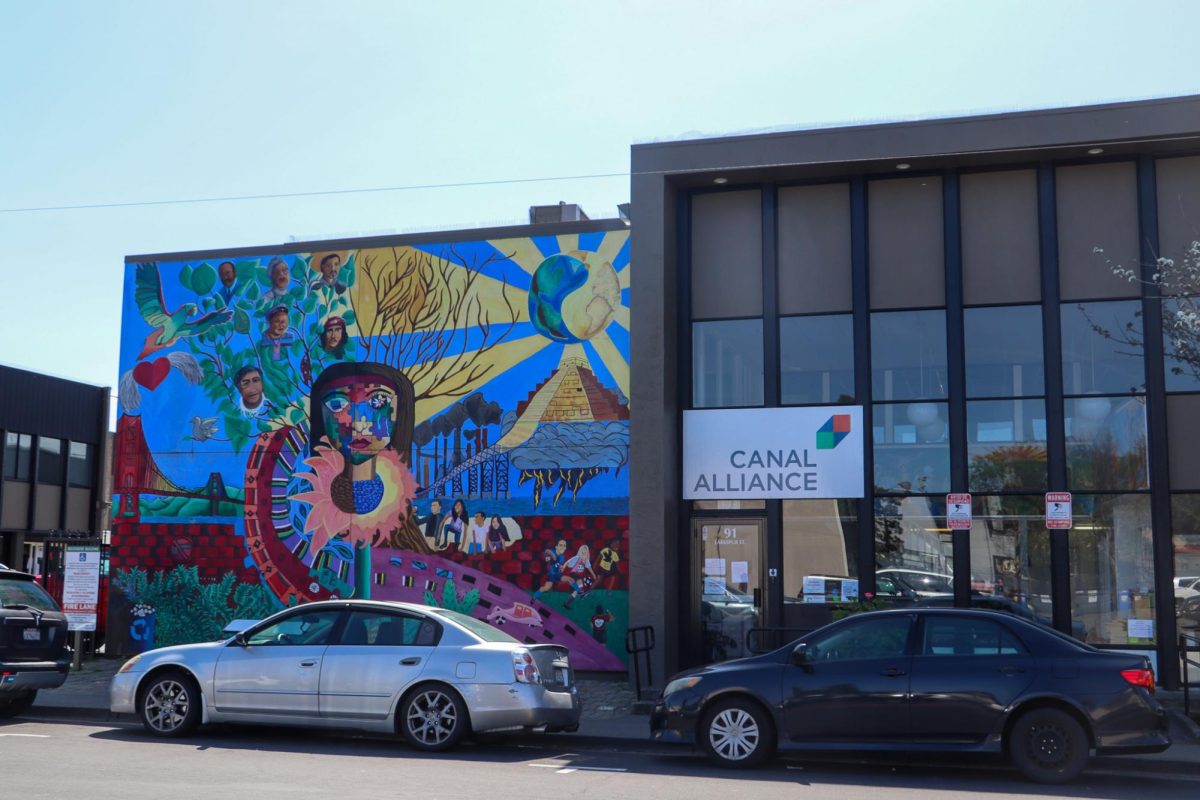As the Trump Administration intensifies efforts to address illegal immigration, Marin County residents have responded with a mixture of fear and opposition. Due to the county’s large undocumented immigrant population, local effects reflect nationwide issues. The escalating crackdown has ignited protests and resistance among Marin residents and businesses.
Immigration and Customs Enforcement (ICE) is the branch of the U.S. Department of Homeland Security responsible for enforcing immigration laws, investigating customs violations, and combating illegal immigration, human trafficking, and international crime. Since his return to power, President Donald Trump has prioritized ICE’s focus to combat the “illegal entry and unlawful presence of aliens in the United States and the enforcement of the purposes of this order.”
Marin is no exception to the swell in ICE arrests and activity under President Trump’s presidency, which saw ICE arrest 20,000 undocumented immigrants across the U.S. in the first month alone—a 627 percent increase compared to the average monthly arrests in 2024 under the Biden Administration.
As of 2023, experts estimate that Marin County houses 16,000 undocumented residents, about six percent of the county’s population. Given Marin’s large immigrant population, organizations have formed to provide resources and help to those in need.
One such organization is the Canal Alliance, headquartered in San Rafael. According to the Canal Alliance’s website, The non-profit is “a champion of immigrants who are challenged by a lack of resources and an unfamiliar environment.” Striving to help immigrants, both undocumented and documented, The Canal Alliance provides resources such as legal, educational, and health support.

While the organization is unable to speak to their clients’ experiences or provide exact demographics, Aimee Velasquez, a paralegal at Canal Alliance, has noticed a large spike in ICE activity in Marin, prompting fearful responses among the non-profit’s clients.
“There is a constant fear that [undocumented individuals] have in the back of their heads. We see a lot of concerns within our clients, especially people who have ongoing cases with us, expressing concerns about how they can protect themselves and their families,” Velasquez said.
ICE’s heightened efforts have not only instilled fear among undocumented immigrants and their friends and families, but also altered day-to-day life for them. Archie Williams freshman Mathias Gomez has found that the presence of ICE near schools and workplaces has obstructed his peers’ lives and routines.
“My family members have friends who tell us that they have family members who have been deported, and that their lives are ruined because of that. [Other people they know] can’t go to work because this is happening. They can’t even really go to school because ICE stops by schools and waits for them,” Mathias said.
This disruption not only affects individuals, but also strains the broader community, as families struggle to maintain stability amid the looming threat of separation.
The recent surge in ICE activity has also evoked retaliation and discriminatory behavior among Marin residents. An anonymous Archie Williams freshman, using the pseudonym Alex, recognizes inappropriate behavior regarding ICE and believes that his peers often underestimate the matter’s severity.
“It’s never happened to me specifically, but recently I’ve overheard people use ICE as an insult. People will make jokes like, ‘I’m gonna report you to ICE.’ I don’t think they realize how serious the topic is,” Alex said.
For others in Marin, peaceful protests and retaliation have disrupted their social lives. Marin residents have taken action regarding the issue by closing storefronts and publicizing their support for immigrants.

On Feb. 3, 2025, Good Earth Natural Foods, a local Fairfax market, closed all of their food service, bakery, and cafe counters in solidarity with “A Day Without Immigrants.” They participated alongside students, businesses, and communities nationwide to highlight the contributions of immigrants to the U.S. economy and to protest against anti-immigration policies.
One of the reasons why local businesses like Good Earth stand in solidarity with undocumented immigrants is because of the agriculture industry’s dependence on the undocumented workforce. In the U.S., an estimated 15.1 percent of agriculture workers are undocumented, and in California, 31.4 percent of agriculture workers are. This means that local-sourcing grocery stores in California receive about 33 percent of their fresh products from unauthorized individuals.
Currently, undocumented workers make up a significant portion of California labor force; according to the American Immigration Council, illegal immigrants in California make up 8.6 percent of the statewide workforce. Specifically, undocumented immigrants in California are an estimated 20 percent of the state’s construction workforce and 12.8 percent of the state’s transportation and warehousing workforce.
While Good Earth employees and local civilians engage in peaceful protest to support the cause, Velazquez believes the most effective way to advocate for immigrant rights and against ICE policies is to simply educate oneself about the matters.
“The best way for people to help the cause is to simply get informed. [Canal Alliance] offers a lot of Zoom meetings where our outreach coordinator gives a lot of information on the services that we provide and also a bunch of resources that are available to the community,” Velasquez said.
The intensifying crackdown has unearthed a need for education in areas that ICE’s mass arrests and deportations have threatened. The Canal Alliance has scheduled events throughout spring to provide resources and education to the community. As of now, Trump has no plans to hold back on his immigration crackdown as he reverses previous laws regarding deportation standards.
This story was originally published on The Pitch on May 14, 2025.




































